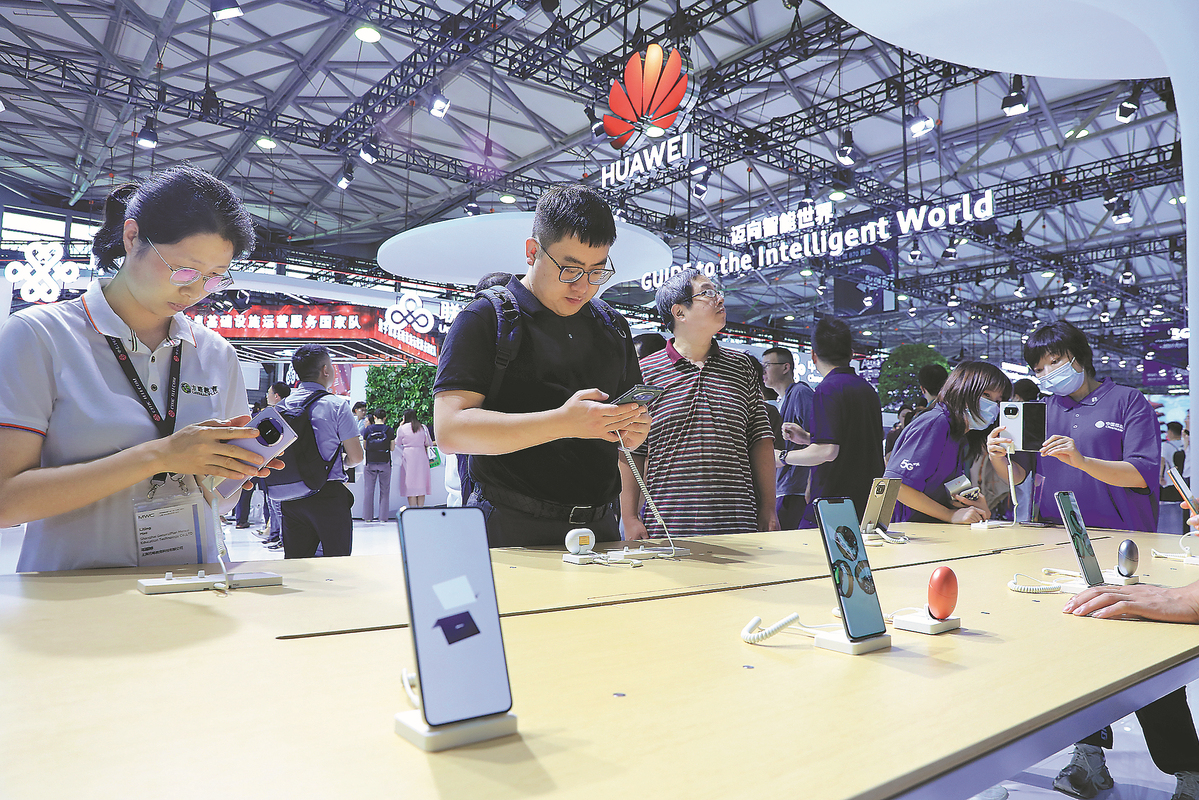Huawei smartphone thumbs nose at US sanctions: China Daily editorial
chinadaily.com.cn | Updated: 2023-09-05 19:05

Seldom, if ever, has the launch of a Chinese product triggered as much global interest as the launch of the latest smartphone from Huawei Technologies Co, the Mate 60 Pro. Many are wondering how the Chinese telecommunications giant managed to come up with what looks like a 5G-capable handset despite the crippling sanctions imposed on it by the United States since 2019 to choke off its supply of chips.
Domestic social networking sites are full of posts with netizens trying to guess how Huawei managed the latest breakthrough. Some assume domestic chipmaker Semiconductor Manufacturing International Corp, which, too, faces US sanctions, used existing materials to make the Kirin 9000s processor that powers the Mate 60 Pro. Others believe Huawei used stockpiled chips to make the Mate 60 Pro, meaning the chips are actually Taiwan Semiconductor Manufacturing Co Ltd products.
With Huawei keeping mum on the core technology used, many say the Mate 60 Pro shows how ineffective Washington's tech sanctions have been and by imposing the sanctions on Chinese enterprises and other entities, the United States is actually hurting its own enterprises.
The low-profile manner in which Huawei unveiled its latest product has left many proponents of the sanctions against China wondering about the effectiveness of the sanctions in checking China's progress in the high-tech sector.
There is no denying that Huawei remains a major force in the telecom consumer market in spite of the sanctions. If the company continues launching products with cutting-edge technologies, the Mate 60 series will become a "milestone" for homegrown technologies, for it would not be just Huawei's success but that of the entire indigenous semiconductor industry.
It may be too early to project the Mate 60 series as proof of China's ability to continue to produce high-end, high-tech products despite the US sanctions. But the timing of the Mate 60 Pro's launch, which coincided with US Secretary of Commerce Gina Raimondo's visit to China and predated Apple's launch of iPhone 15, shows the innovation capability of Chinese enterprises.
On returning home, Raimondo told NBC's Meet the Press that US enterprises were "not going to sell the most sophisticated American chips to China" under her watch. She was hinting at choking the supply of chips to China to prevent the modernization of China's military. But she certainly didn't expect Huawei to overcome hurdles, and break new ground.
If that is the case, Washington's sanctions regime has not only proved to be ineffective but also self-harming.
























